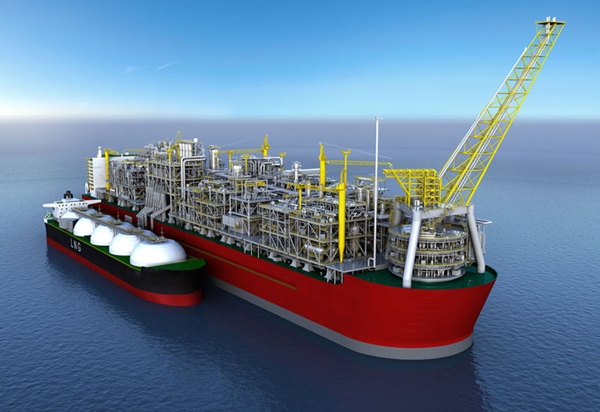ABB has secured a contract worth approximately $50 million to supply electrical systems for one of the world’s first floating LNG facilities.
The floating liquefied natural gas (FLNG) facility known as PFLNG2 will be owned by Malaysian Oil and Gas Company PETRONAS.
The PFLNG2 will be built at Samsung Heavy Industries’ yard in Geoje, Korea in 2015.
The contract was awarded in the fourth quarter of 2014 by the Japanese firm JGC Corporation.
JGC is part of a consortium formed by the facility building for PETRONAS along with Samsung Heavy Industries of Korea.
The operation is expected to start in 2018. The facility will be chained over the deep water Rotan gas field located off the Malaysian coast.

The facility is estimated to produce 1.5 million tons of LNG annually for a minimum of 20 years.
ABB will play key part in the optimization of the electrical system by providing designing and manufacture inputs for the facility.
In addition, ABB will be responsible for supplying transformers, switchboards, motor-control centers and power management system.
ABB will also manage the installation of the equipment and ensure that the electrical supply is integrated with systems it is powering.
The machinery and controls supplied by ABB for PFLNG2 will be accommodated in two electrical houses known as e-houses.
READ ALSO ABB joins hands with Solar Impulse for solar-powered flight
These prefabricated steel e-houses designed by ABB will ensure that the equipment remains safe from the corrosive marine environment as well as hazardous gas, providing a safe environment for the operation crew.
ABB may face certain challenges while designing systems for FLNG facilities, particularly when they have to make all features of an onshore plant, able to generate power necessary to compress the gas within a limited space.
FLNG plants resemble container ships and are fitted with all necessary equipment to receive, liquefy and store natural gas extracted from offshore fields. They are designed in a compact manner to fit in a confined area.
FLNGs market is anticipated to hit $64 billion by 2020. Their environmental impact is minimal compared with conventional production platforms and pipelines.
Sabeena Wahid
